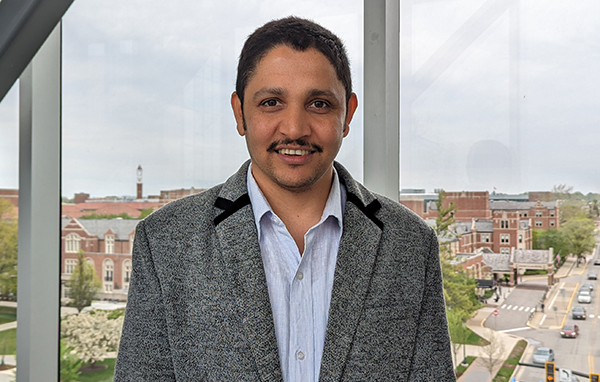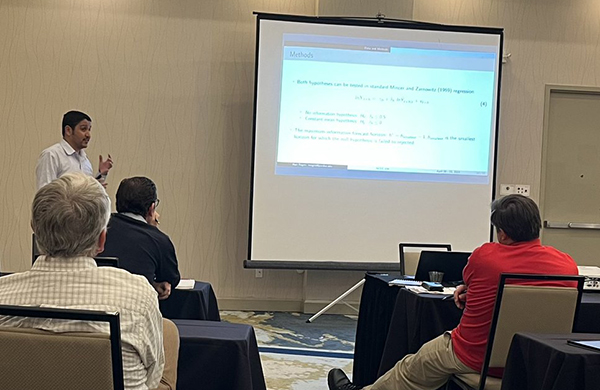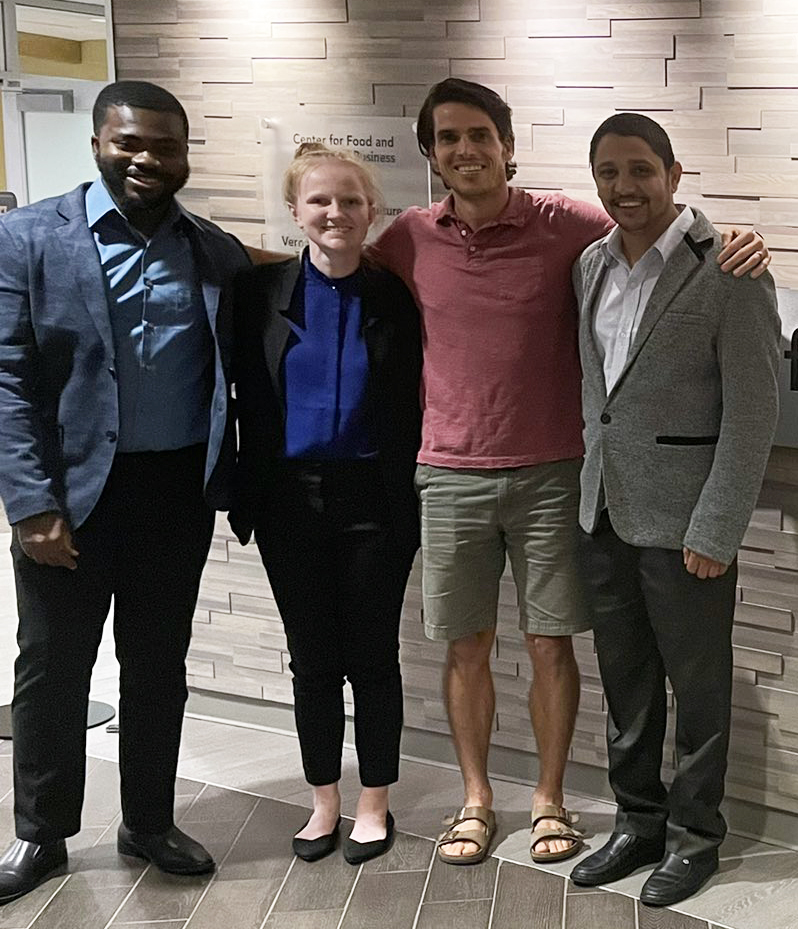A unique journey, graduate student stays dedicated to his goals
 Hari Regmi grew up in a farming community in one of the rural hill districts of Nepal. As a member of a farm family, Hari witnessed first-hand the challenges faced by small-scale farmers and the impact it had on their lives.
Hari Regmi grew up in a farming community in one of the rural hill districts of Nepal. As a member of a farm family, Hari witnessed first-hand the challenges faced by small-scale farmers and the impact it had on their lives.
Eager to make a difference, Hari enrolled at Tribhuvan University, Nepal to better understand the unique issues, such as production, marketing, and financing, that shape the livelihoods of farmers. After graduating in 2010 with a degree in agricultural economics, Hari went on to work for Nepal’s Ministry of Agricultural Development as an extension economist for eight years. There he worked on different projects funded by the World Bank and the Asian Development Bank.
“During these eight years, I was fortunate to work closely with and understand the economic issues facing small and commercial producers,” said Hari. “I witnessed the impact of governmental policies on farm households’ economic well-being. I also gained valuable experience in extension work and became interested in contributing to the policy process through applied economic research.”
That led Hari to enroll at the University of Tennessee, Knoxville, where he earned a M.S. in agricultural economics in 2018. Still looking to grow his knowledge in applied economic research, Hari began exploring opportunities for Ph.D. programs in agricultural economics and enrolled at Purdue University in Fall of 2020. He received the prestigious Ross Fellowship in recognition for his academic excellence.
Hari’s research interests are broad, but he remains committed to policy-relevant research.
“My dissertation work investigates different components of government projections and forecasts, which play a vital role in shaping US food and agricultural policy,” said Hari. He believes his findings should be of interest to both the USDA and policymakers as the new 2023 Farm Bill is being developed. “These results should help forecast users, including policymakers, adjust expectations and make informed decisions.”

Aside from his dissertation, Hari was recently able to collaborate with economists from USDA’s Economic Research Service (ERS) to investigate issues related to U.S. farm households’ economic well-being. He also examined how U.S. farm operations participated in the Economic Injury Disaster Loan (EIDL) Program.
Even with all of Hari’s dedication and hard work, he recognizes the importance of work-life balance. Which holds an even greater importance for Hari, as a devoted father to two young children.
“Graduate life is really challenging in terms of work-life balance and time management, especially if you have a family and kids,” said Hari. “I have two kids, a 9-year-old and a 2.5-year-old. However, if you are committed and dedicated to your goal, you will definitely succeed.”

Hari considers himself fortunate to have a strong support unit amongst his fellow researchers. From his academic advisor, Dr. Todd Kuethe’s mentorship and guidance, the USDA-ERS research team’s encouragement and inspiration, to his COVID-cohort colleagues (Chad, Eugene, and Megan) who have become cherished friends, he is grateful to those who have helped him along the way.
In early May, Hari accomplished two milestones. He successfully defended his dissertation and started a new role as a Senior Research Manager with the Washington State Economic Service Administration’s Department of Social and Health Services. While this closes the door on his time at Purdue, he is excited to be in the new role which entails conducting research and providing professional consultation to senior management and program managers with a focus on child support programs.
